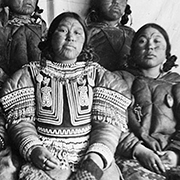CANADA HISTORY
King Byng Affair

The King-Byng Affair of 1926 is one of the most significant constitutional crises in Canadian history. It had profound implications for the balance of power between the Governor General and the Prime Minister, and it played a crucial role in reshaping Canada’s political landscape. What began as a corruption scandal in the Customs Department soon escalated into a dramatic political confrontation between Prime Minister William Lyon Mackenzie King and Governor General Lord Byng. The outcome not only determined the fate of King's political career but also redefined the constitutional norms governing the relationship between Canada's elected government and its appointed representatives of the British Crown.
The Roots of the Crisis: Customs Scandal and Political Corruption
The seeds of the King-Byng Affair were sown in a corruption scandal within Canada’s Customs Department. The Liberal government, led by Mackenzie King, faced mounting criticism when George Boivin, the Liberal Minister responsible for duties and excise, was found to have interfered in the sentencing of a convicted smuggler, Moses Aziz. Aziz had been caught with contraband liquor for a third time, an offense that warranted a one-year prison sentence. Boivin’s efforts to mitigate Aziz’s punishment were widely perceived as an abuse of power and a blatant example of political corruption within the Liberal ranks.
The scandal sparked a broader investigation into liquor smuggling and corruption within the Customs Department. A Parliamentary committee was formed to review liquor regulations, and their findings further damaged the Liberal government’s credibility. With mounting evidence of misconduct, the opposition introduced a motion of censure against the government, which threatened to topple King’s minority government. King faced a serious challenge: if the motion of censure passed, it would likely spell the end of his political career.
Parliamentary Deadlock and King’s Request for Dissolution
At the time, King’s Liberal Party held 101 seats in the House of Commons, while the Conservatives, led by Arthur Meighen, controlled 116. The balance of power lay with the Progressive Party, which held 24 seats, along with a handful of independents and Labour MPs. Despite King’s attempts to secure support from the smaller parties, the momentum of the corruption scandal made it increasingly likely that his government would fall. J.S. Woodsworth, leader of the Labour Party, delivered a passionate two-hour speech in support of King, arguing that he was a better choice than the Conservatives. However, by the fifth day of debate, it appeared inevitable that the Liberals would be defeated.
Facing this political quagmire, King devised a bold strategy. On June 25, 1926, he made three visits to Governor General Lord Byng at Rideau Hall, requesting the dissolution of Parliament and a new federal election. King argued that since no other party had governed since the last election, his government had the right to seek a new mandate from the people. King’s reasoning was based on the principle that as the sitting Prime Minister, he was entitled to request an election if his government no longer held the confidence of the House of Commons.
However, Lord Byng refused King’s request. Byng believed that an election was unnecessary and that the opposition Conservatives could form a stable government with the support of the Progressives. Byng’s refusal marked a significant moment in Canadian constitutional history, as it was the first time that a Governor General had refused a Prime Minister’s request to dissolve Parliament. This refusal set the stage for a dramatic political confrontation between King, Byng, and the opposition.
King’s Resignation and Meighen’s Government
Undeterred by Byng’s refusal, King took decisive action. He returned to the House of Commons and shocked the chamber by announcing his government’s resignation. With a motion to adjourn the House, King effectively brought parliamentary proceedings to a halt, leaving the political landscape in turmoil. As Arthur Meighen began to respond, King interrupted him, declaring, "I might say that this motion is not debatable." Meighen, clearly caught off guard, suggested further discussion with King, to which King replied that "there was no Prime Minister."
Later that day, Lord Byng called upon Arthur Meighen to form a government. Meighen accepted, but he faced a significant constitutional hurdle. Under parliamentary tradition at the time, any MP who accepted a Cabinet position was required to resign their seat and run in a by-election. Meighen, however, sought to bypass this requirement by designating his ministers as “acting ministers,” allowing them to serve without resigning their seats.
This move opened the door for King to strike back. King attacked the legitimacy of Meighen’s government, arguing that the acting ministers had not taken the proper oath of office and, therefore, had no legal authority to introduce legislation or conduct government business. King’s sharp political maneuvering raised doubts about the legality of Meighen’s government, and as a result, the Progressives withdrew their support.
The pivotal moment came when Meighen’s government faced a confidence vote. The government was defeated by one vote—96 to 95—forcing Lord Byng to call a federal election. King had masterfully turned the tables on Meighen, shifting the political narrative from the corruption scandal that had plagued his government to a debate over the constitutional legitimacy of Meighen’s administration.
The 1926 Election: King’s Triumph
In the general election that followed, King and the Liberals framed the contest as a battle for Canadian sovereignty and democratic governance. King portrayed the King-Byng Affair as evidence of undue interference by an unelected Governor General in the democratic process. He appealed to nationalist sentiments, arguing that Canada needed greater independence from Britain and that the Governor General should not overrule the elected Prime Minister’s decisions.
The election results were a decisive victory for King and the Liberals. They won 116 seats, including a stunning 60 of 65 seats in Quebec, where King’s nationalist message resonated strongly. Meighen’s Conservative Party was reduced to 91 seats, while the Progressives, who had once supported Meighen, won 30 seats and sided with the Liberals once again. Meighen’s political career was dealt a severe blow, and he was soon replaced as Conservative leader by R.B. Bennett.
Constitutional Implications and the Legacy of the King-Byng Affair
The King-Byng Affair had far-reaching constitutional implications. It fundamentally altered the relationship between the Governor General and the Prime Minister, reinforcing the principle of responsible government in Canada. King’s successful framing of the affair as a violation of Canadian sovereignty helped establish a precedent: the Governor General must act on the advice of the sitting Prime Minister, except in the most extraordinary circumstances.
The crisis also had broader implications for Canada’s constitutional development. It played a crucial role in the evolution of Canada’s relationship with the British Empire, leading to greater autonomy in domestic governance. By 1931, the Statute of Westminster was enacted, granting full legal autonomy to Canada and other dominions within the British Empire. This statute marked a significant step toward Canadian independence, ensuring that Canada’s Parliament had control over both foreign and domestic policy.
Additionally, the King-Byng Affair solidified Mackenzie King’s legacy as one of Canada’s most astute political leaders. His ability to navigate the crisis, rally nationalist sentiment, and secure victory in the 1926 election demonstrated his deep understanding of both the Canadian electorate and the constitutional nuances of parliamentary democracy.
The King-Byng Affair was a defining moment in Canadian history, marking a turning point in the nation’s constitutional evolution and its quest for independence. It exposed the limitations of British-appointed representatives in Canadian politics and reinforced the democratic principle that the elected government must be allowed to govern without interference from the Crown’s representatives. The affair also highlighted the political acumen of Mackenzie King, whose masterful handling of the crisis allowed him to recast the political narrative in his favor and secure a lasting legacy as one of Canada’s most influential Prime Ministers.
Cite Article : www.canadahistory.com/sections/documents




